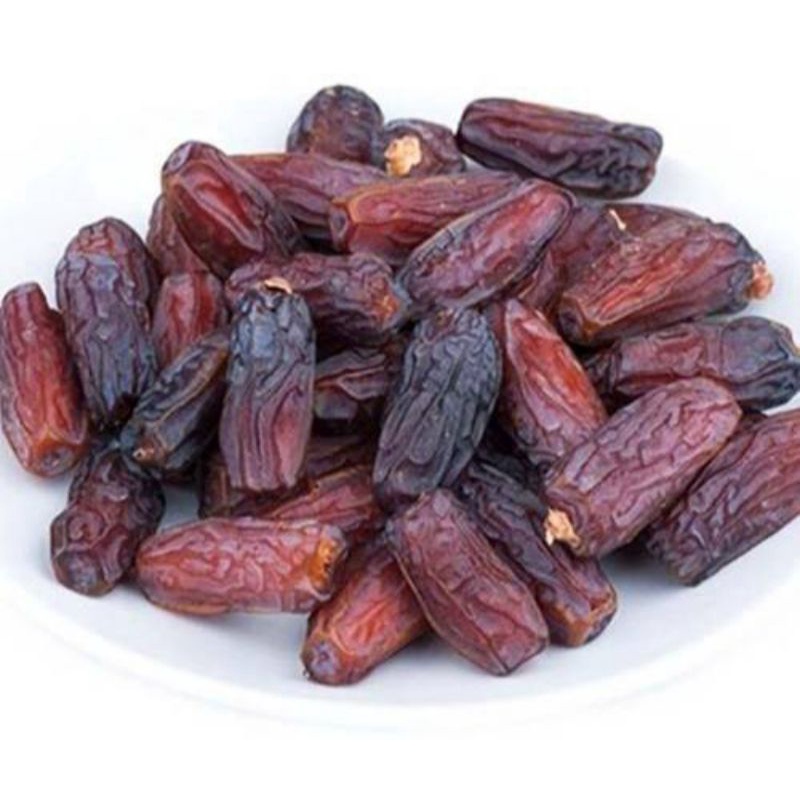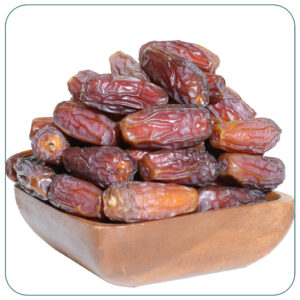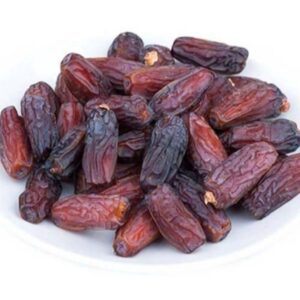The Prized Delight: Exploring Kurma Mabroom in Malaysia

Kurma Mabroom, a renowned date variety, holds a special place in the hearts and palates of Malaysians. With its origins rooted in the Middle East, this delicacy has found its way to Malaysia, captivating locals with its distinctive flavor and remarkable health benefits. In this blog post, we embark on a delightful journey to explore Kurma Mabroom, unveiling its unique characteristics, cultural significance, and the numerous advantages it offers. Join us as we savor the fascinating world of Kurma Mabroom Malaysia.
The Origin and Cultural Significance
Kurma Mabroom, also known as “Mabroom Dates,” traces its roots back to the Middle East, particularly Saudi Arabia. These dates are highly regarded for their exceptional taste and quality, making them sought after in various parts of the world, including Malaysia. In Malaysian culture, Kurma Mabroom is esteemed as a symbol of hospitality and generosity. It is often offered to guests as a sign of welcome and is an integral part of traditional Malaysian cuisine.
Distinctive Characteristics of Kurma Mabroom
Kurma Mabroom possesses distinctive characteristics that set it apart from other date varieties. These dates are medium-sized and cylindrical, with a dark brown color and a soft, chewy texture. They are known for their rich, caramel-like flavor, combining sweetness with a hint of nuttiness. The unique taste profile of Kurma Mabroom makes it a favorite choice for consumption and culinary applications.
Health Benefits and Nutritional Value
Beyond their delectable taste, Kurma Mabroom offers numerous health benefits. These dates are a rich source of essential nutrients, including fiber, potassium, magnesium, and antioxidants. They provide a natural energy boost, aid in digestion, and contribute to overall well-being. Kurma Mabroom is also known for its high fiber content, which promotes a healthy digestive system and helps in maintaining a balanced diet.
Incorporating Kurma Mabroom into Malaysian Cuisine
Kurma Mabroom plays a significant role in Malaysian cuisine, adding depth and flavor to a variety of dishes. These dates are often used in both sweet and savory recipes, enhancing the taste and texture of traditional Malaysian delicacies. They are commonly featured in desserts, such as cakes, puddings, and traditional Malay sweets. Additionally, Kurma Mabroom can be paired with savory ingredients in dishes like rice pilaf, stews, and curries, creating a delightful fusion of flavors.
The Joy of Gifting Kurma Mabroom

Kurma Mabroom holds a special place in Malaysian culture when it comes to gifting. These dates are often presented as thoughtful gifts during festive occasions, such as Eid al-Fitr and other celebrations. Sharing Kurma Mabroom is a gesture of goodwill, symbolizing blessings, and strengthening social bonds. It is an expression of love, respect, and appreciation for friends, family, and acquaintances.
The Significance of Kurma Mabroom during Eid al-Fitr Celebrations
Eid al-Fitr, also known as Hari Raya Aidilfitri in Malaysia, is a joyous festival that marks the end of the Islamic holy month of Ramadan. During this festive occasion, Kurma Mabroom holds great significance and is an integral part of the celebrations. Let’s explore the importance of Kurma Mabroom during Eid al-Fitr in Malaysia.
A Symbol of Breaking the Fast
Eid al-Fitr is a time of celebration and feasting after the month-long fasting period of Ramadan. Muslims in Malaysia break their fast with dates, including Kurma Mabroom, following the tradition of Prophet Muhammad (PBUH). It is believed that the Prophet himself broke his fast with dates, emphasizing their significance in this festive occasion. Kurma Mabroom serves as a symbolic reminder of the perseverance and self-discipline observed during Ramadan.
Enhancing the Festive Atmosphere
Kurma Mabroom plays a vital role in enhancing the festive atmosphere during Eid al-Fitr celebrations. These dates are shared among family, friends, and neighbors as a gesture of goodwill and unity. The act of exchanging Kurma Mabroom symbolizes the spirit of generosity, strengthening social bonds, and fostering a sense of community. It is common to find beautifully arranged platters of dates, including Kurma Mabroom, adorned with traditional decorations, adding to the visual appeal of the festivities.
Offering Sweet Delights to Guests
Hospitality is an essential aspect of Eid al-Fitr celebrations in Malaysia, and offering Kurma Mabroom to guests is a cherished tradition. It is customary to welcome visitors with a variety of dates, including Kurma Mabroom, along with traditional sweets and refreshments. The sweet and nutty flavors of Kurma Mabroom provide a delightful treat to guests, symbolizing warmth, generosity, and hospitality.
Charitable Giving
Eid al-Fitr is a time of giving and compassion, and Kurma Mabroom plays a role in charitable acts during this festive occasion. Muslims in Malaysia often distribute dates, including Kurma Mabroom, to the less fortunate and those in need. This act of charity, known as Zakat al-Fitr or Fitrah, allows everyone to partake in the joy of Eid and ensures that those facing economic challenges can also enjoy the festivities. Sharing Kurma Mabroom in this manner reflects the values of empathy, kindness, and solidarity within the community.
A Culinary Delight
Kurma Mabroom is not only a symbol of tradition and generosity during Eid al-Fitr but also a culinary delight. These dates are incorporated into various festive dishes, desserts, and traditional Malaysian sweets. They add a touch of sweetness, flavor, and texture to the culinary creations prepared for the celebrations. From date-filled pastries to decadent desserts, Kurma Mabroom adds an exquisite element to the festive feasts enjoyed during Eid al-Fitr.
Key Highlights:
– Kurma Mabroom: A cherished date variety from the Middle East.
– Cultural Significance: Symbolizes hospitality and generosity in Malaysia.
– Distinctive Characteristics: Medium-sized, dark brown, soft and chewy.
– Health Benefits: Rich in fiber, potassium, magnesium, and antioxidants.
– Culinary Use: Enhances sweet and savory Malaysian dishes.
– Eid al-Fitr: Kurma Mabroom as a symbol of breaking the fast.
– Festive Atmosphere: Beautifully arranged platters of dates.
– Hospitality: Offering Kurma Mabroom to guests during celebrations.
– Charitable Giving: Distributing Kurma Mabroom to the less fortunate.
– Culinary Delight: Kurma Mabroom in festive dishes and desserts.
Conclusion
Kurma Mabroom holds deep significance during Eid al-Fitr celebrations in Malaysia. As a symbol of breaking the fast, a means of enhancing the festive atmosphere, a gesture of hospitality, a charitable offering, and a culinary delight, Kurma Mabroom adds richness and meaning to this joyous occasion. Its presence not only honors the traditions of the Prophet Muhammad (PBUH) but also brings people together, fostering a sense of unity, charity, and celebration within the Malaysian Muslim community.
